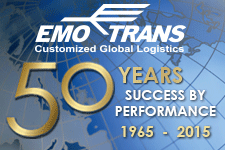
The Singapore Aircargo Agents Association will soon be offering its own airport shuttle services for freight in a bid to boost the competitiveness of the city-state’s exporters, forwarders, and agents.
The plan will be trialed with 28 forwarders starting July 1. Participating companies will combine loads onto trucks, which will then shuttle cargo within Changi Airport Cargo Complex.
“Using consolidated trucks instead of multiple trucks to the same location will improve competitiveness,” said Steven J. K. Lee, Chairman of SAAA. “This is a year three program and we’ll continue to increase capacity based on demand.”
Lee told FlyingTypers his organization was being helped with the funding of the new service by Singapore’s government. “The government wants to help SMEs improve productivity,” he said. “Singapore is a high-cost environment so this is the only way we can compete.”
The move to help Singapore’s beleaguered forwarders and air freight agents comes as the sector faces substantial headwinds. Changi’s freight volumes have remained static for a decade, while Lee said the high costs of operating in Singapore and the strength of the Singapore dollar had impacted the competitiveness of manufacturing. “Singapore is loosening the Dollar, but we’re competing against Vietnam and Malaysia amongst others,” he explained. “Vietnam has lower costs and the Ringgit has depreciated substantially. This is a concern for freight forwarders. If there isn’t growth they need to restructure and make redundancies. Some forwarders have already gone to a four-day week rather than shed jobs.
 “We are looking at every aspect to improve competitiveness, such as how we can have better automation, or seamless paperless transactions, so we can reduce manpower on documentation.” “We are looking at every aspect to improve competitiveness, such as how we can have better automation, or seamless paperless transactions, so we can reduce manpower on documentation.”
Lee said that in Singapore, as elsewhere, Q1 demand for air freight services had been poor and Q2 was proving “flat.”
“The government is trying to support Singapore’s SMEs, which make up 60 percent of our manufacturing output,” he said. “Multinationals have the strength to continue to take the impact of the poor global economy, but SMEs feel they are under threat, because they are not able to price as competitively as bigger companies. Electronics manufacturing has been hit very hard by higher costs in Singapore.”
Lower rates for air cargo services due to poor demand and excess capacity have further frayed the profit margins of Singapore’s freight sector. “We have seen some airlines, in desperation to fill up space, quoting ridiculously low rates such as Singapore to Hong Kong at Sing$0.20 cents per kg,” he said.
Singapore’s huge use of e-commerce has also not helped forwarders. “Amazon and Alibaba have their own supply chain capacity,” he said. “E-commerce has forced manufacturers into situations where they don’t hold inventories, so they are not sending in bulk, they are sending it on demand, which benefits couriers. E-commerce means air freight forwarders are impacted because volumes are smaller, so they are not going in ULDs. Smaller shipments and more capacity are not a good combination.”
Demand from major markets has also been poor. While exports to Latin America have been holding up well and Iran, Iraq, and Myanmar offer promise, Lee said the Asia market was largely dependent on China, which was in the process of major economic restructuring. “It will take a while before we see the light at the end of the tunnel in China,” he said.
“In the U.S., every election means a slowdown in trade movements. “This happened four years ago.
“Europe is mixed. The focus appears to be on immigrants, not international trade or economic growth.
“It’s a rough market right now.”
SkyKing
|




 Vol. 15 No. 36
Vol. 15 No. 36